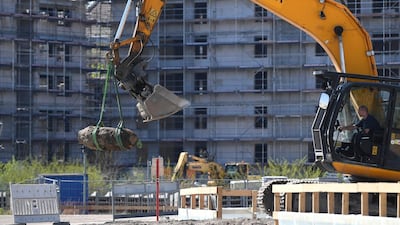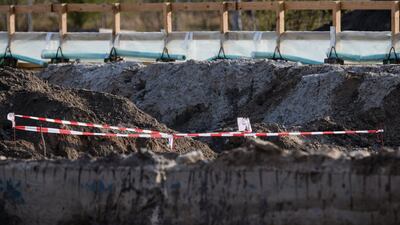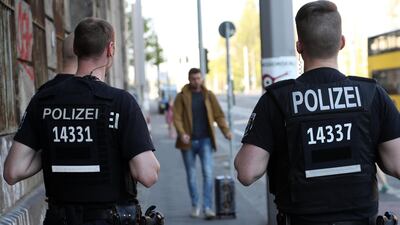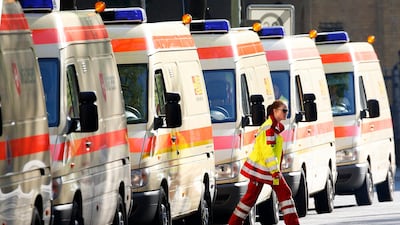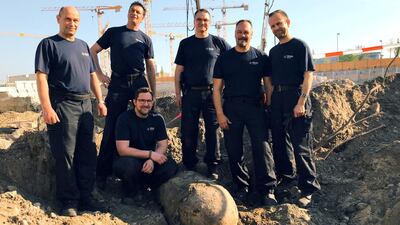Berlin police moved thousands of people out of a central area of the German capital Friday and shut down the main train station while experts defused and removed an unexploded World War Two bomb found during recent construction work.
About 10,000 residents and workers were forced to leave a two-square-kilometre area, including the train station, while bomb experts defused the 500-kilogram British bomb dropped during the war.
Trains were prevented from stopping at the busy station from 10am, and through traffic was shut down at 11,30am before experts began their work, German rail operator Deutsche Bahn said. Some 300,000 travellers use the station daily.
Bomb disposal experts were able to successfully remove the detonator just after 1pm and destroy it in a small controlled explosion.
The evacuation area, a circle around the construction site north of the train station where the bomb was discovered during digging, also included a hospital, the new offices of Germany's foreign intelligence service, and parts of both the economy and transportation ministries.
Chancellor Angela Merkel's office and Germany's parliament building are close by, but outside the zone.
Even 73 years after the end of the war, such discoveries remain common in major German cities.
Downtown Berlin was largely reduced to rubble in hundreds of Allied bombing raids during the war and street-to-street fighting between the Nazi and Soviet armies in the final days of the conflict.
Experts estimate that more than 5 per cent of the bombs dropped on Berlin failed to explode for a variety of reasons, including faulty fuses, poor assembly and bad angle of impact. The city estimates at least 3,000 bombs, grenades and other munitions are still buried.
They are found frequently enough that they are treated more as a nuisance than a major public safety issue, and authorities are well trained and experienced with their removal and destruction.
In one of the more sensational finds, a 250kg British bomb was found in 2002 beneath the lower ring of seats during renovation work at Berlin's Olympic Stadium, where tens of thousands of fans regularly watch the city's Hertha BSC soccer club play its home games.
Such finds are also common elsewhere in Europe, and Slovak authorities on Friday had to evacuate people in a town near the southern border with Hungary after four unexploded World War Two bombs were found by a man walking his dog.
Police said the 100kg Soviet bombs were found in a field in the town of Sturovo.
